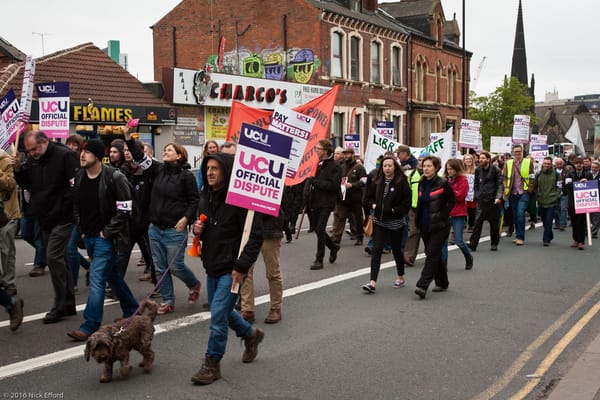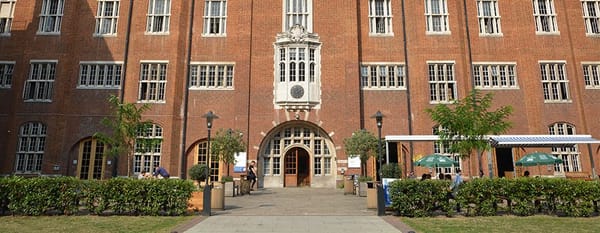Imperial Graduate CEO of Spyras Named UK’s Most Promising Entrepreneur

George Winfield studied MRes Medical Device Design and Entrepreneurship at Imperial and won both the White City Innovators’ Programme in 2018 and the Technology category of the Mayor of London Entrepreneur awards in 2019. His entry was ‘Spyras’, a paper-based breathing sensor used to reliably and efficiently identify sepsis. He has since gone on to be announced as the UK’s most promising young entrepreneur by the Royal Academy of Engineering Enterprise Hub. Jack Powell caught up with him to gain an insight into his journey with Spyras and his experience with the Mayor’s Entrepreneur competition
J: How did the initial idea for Spyras come to you?
G: The initial aim was to get a good grade in my masters to go on to a job in finance or consulting! The technology had been concepted in the Guder Research group and it just needed someone to take it to the next step and commercialise it. My research was to tailor a novel, paper sensor-based technology to monitor breathing, and if possible, to find a practical application for this that could have a genuine impact. It seemed like a tough task, especially since breathing is such a difficult vital sign to monitor. It has more impact on our general health and wellbeing than you can imagine. In a hospital setting, best practice is for breathing rate to be manually monitored and counted. Unfortunately, this is an entirely unreliable exercise, given that an elevated breathing rate is one of the earliest indicators of sepsis.
Sepsis is a condition which, once it takes hold, kills at a rapid rate. It claims more victims than breast, bowel, and prostate cancer combined in the UK. Spyras was founded to meet the need for better respiratory analysis, and earlier identification of this fatal condition. In the course of researching my thesis, I learned that identifying the signs of sepsis in patients has the potential to save over 5,000 lives annually in the UK and over £200m in direct treatment costs alone by preventing intensive care unit admissions from lower care hospital wards. The accelerator at White City in partnership with NatWest was starting next door to where I lived and was aimed at allowing people to test potential new business ideas. We applied, ended up winning it, and the next day were fortunate enough to win a research grant worth £68000 in addition to the £5000 from NatWest. Maybe it does have the potential. Maybe it can do what we think it can.
J: What are your thoughts on being named the UK’s most promising young engineering entrepreneur?
G: It’s a very flattering title to have been presented with, but it’s all dedicated to the team we have that have sacrificed so much in order to get Spyras going. It is a strange feeling reflecting back on the student project, from the aim of getting a good grade to being on the verge of creating something very special that has gained international attention. We can’t wait to get it going.
J: What made you decide to enter the Mayor’s Entrepreneur Competition?
G: What have I got to lose? A simple application with a chance to gain a national title, and a massive cash injection of £20k with notable networks now on offer.
J: How was your experience in the competition?
G: Very competitive. There are so many impressive businesses in the student entrepreneur scene. We had to get an impressive business pitch together and across in 2 minutes, with no slides, in the middle of City Hall (fans of The Apprentice will know the place) to a panel that included the likes of Richard Reed (Innocent Smoothies) and Cassandra Stavrou (Propercorn). It is an incredibly lonely place to stand in the middle of that hall – but presenting to the audience and having the cameras live-stream it just added to the experience. Being able to grow your network during the process and to have your name mentioned at City Hall is surreal.
J: How did you make use of the City Hall mentoring after winning in 2019?
G: I meet quite regularly with programme managers at the Mayor’s Office, who provide an independent and impartial view to bounce my ideas off. To have that sounding board and another network, alongside the Mayor’s Office to use, is invaluable.
Applications for the Mayor’s Entrepreneur Competition 2020 close on 22nd March. They’re looking for students and recent graduates with smart ideas in one of four categories: Environment, Health, Smart Cities and Creative Industries. You could win £20k and mentoring from the Mayor’s Office to launch your idea. City Hall is also putting on a series of free workshops for students to find resources for generating ideas, meet potential business partners, and learn valuable pitching techniques. The first one is on 17th December, with another on 17th February – and you don’t already need to have an idea to come along! If you’re interested in entering or finding out more details, send an email to jp2517@ic.ac.uk or search ‘Mayor’s Entrepreneur Competition’ on Google.








